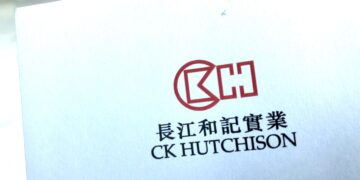Patients of the rare inheritable disease mainly exhibit symptoms of uncontrolled muscle movements and cognitive decline, with some developing psychiatric disturbances. Currently, there is no cure for the disease.
The team found that the level of an enzyme, known as PAPD5, is almost five times higher in patients with the disease compared with healthy individuals, with researchers saying the enzyme can be suppressed by the BCH001 inhibitor.
“So if there’s a high PAPD5 level exhibited in the patient’s brain cells, after treating the BCH001, the activity of PAPD5 will be lowered back to the normal level, and that would be the treatment strategy we have in mind,” said Professor Edwin Chan, who heads the team.
The team is applying for a United States patent to use PAPD5 and BCH001 in treating the disease.
It is also still finding other methods to inhibit the PAPD5 enzyme, and evaluating their effectiveness on cellular and rodent models.
In Europe, seven out of 100,000 people have Huntington’s disease. In Hong Kong, 20 patients were identified from 1984 to 1991.
Chan said doctors currently treat the disease by suppressing its symptoms.






















